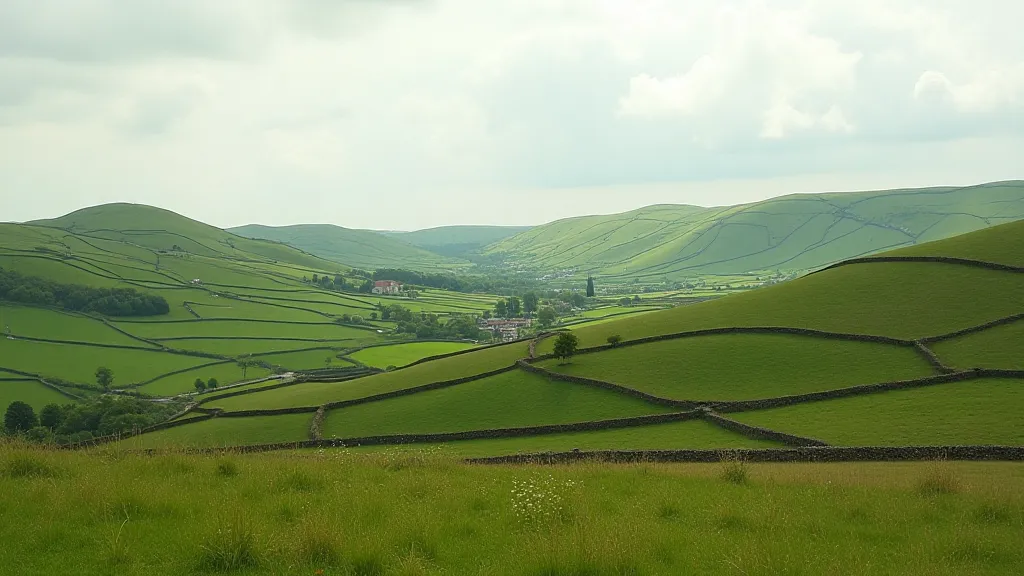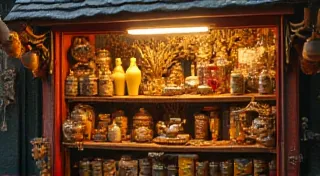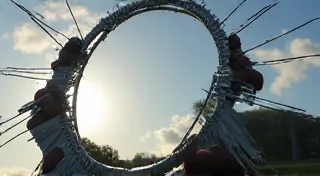The Ghosts of Words: Lexical Remnants and the Lingering Memory of Old Ways
There’s a peculiar melancholy that settles when you encounter a word in a regional dialect – a word you’re utterly unfamiliar with, yet feel instinctively holds a history far greater than its immediate lack of understanding suggests. It's akin to discovering a beautifully crafted antique accordion, its bellows worn soft with countless hands, its keys yellowed by time, playing a tune you can't quite place. You *know* it carries a story, a song of lives lived and landscapes traversed, even if the lyrics remain stubbornly out of reach.
This isn’s merely about quirky phrases or odd pronunciations. It's about lexical fossils – words that survive, almost stubbornly, in regional dialects long after they’ve faded from common usage in the dominant language. These aren’t grammatical errors or signs of backwardness; they are, in fact, potent echoes of the past, holding within them the narratives of communities, migrations, and cultural shifts. The pressure towards a more standardized form of communication inevitably leaves some words behind, particularly those deeply tied to specific trades and industries. How do we understand the link between our daily lives and these lost words? Sometimes, this connection is visible only when we consider how agriculture and dialect intertwine—the terminology of farming, for example, often providing a rich source of linguistic preservation.

The Weight of a Lost Meaning
Think about the word "chivvy." In certain parts of England, particularly in the West Country, it still means to nag or pester. A child might be told they're being "chivvied" by their parents. However, its original meaning – and this is the fascinating part – comes from the Cornish word *devny*, meaning ‘to stir up’ or ‘to agitate’ – originally applied to stirring a fire. The semantic shift is remarkable, a testament to the journey words take as they migrate and adapt within communities. The initial sense of invigorating warmth has evolved into a rather less pleasant connotation.
This isn’t an isolated incident. Hundreds, perhaps thousands, of words across the English-speaking world (and countless others in different language families) exhibit similar phenomena. They are linguistic ghosts, whispering tales of vanished trades, lost industries, and the ebb and flow of population. The sadness isn’t in the loss of the meaning itself, but in the understanding that the context which gave that meaning its power has largely vanished. The very geography and the types of work performed in a specific place heavily influence the vocabulary used; and sometimes, the way that those words change is only understandable if you consider how trade and dialect are connected.
Consider, too, the impact of standardization. The rise of mass media, education systems, and increasingly centralized governance has exerted immense pressure on regional dialects, pushing them towards a more homogenous linguistic landscape. While standardization has undoubtedly brought about certain benefits – increased communication, easier access to information – it has also contributed to the erosion of unique linguistic heritage. These archaic words become isolated pockets of resistance, stubbornly refusing to be swept away by the tide of linguistic conformity. It’s a process that goes beyond simple linguistic changes; it's a reshaping of how people perceive one another, and how accent and perception are linked.
The Craftsman’s Mark: Linguistic Preservation
Just as a master craftsman pours their skill and passion into creating a lasting object – a sturdy chair, a delicately carved figure – speakers of regional dialects preserve these words, often unconsciously. They carry them down through generations, not always understanding their full etymological history, but retaining the sense that these words are “just how we say things here.” It's a form of cultural inheritance, a subtle act of resistance against the homogenizing forces of modernity. Often, these traditions are passed down through the wisdom of elders; a topic explored further in Silent Sentinels: The Role of Elders in Preserving Dying Dialects.
My grandfather, born and raised in a small Yorkshire village, was a prime example. He possessed a vocabulary rich in localisms – words like "beck" (stream), "tarn” (mountain lake), and "snapethorn" (a type of thistle). He wasn't a scholar of language; he was a farmer, a man of the land. Yet, he wielded this lexicon with the effortless grace of someone who had been breathing it since birth. When he passed away, it felt like a small part of that linguistic heritage vanished with him, a reminder of the fragility of these localized treasures. The way he spoke, the cadence and the vocabulary, were reflections of the place he was from – how diverse these voices can be within the same community, and how dialectal variation presents a fascinating study.

Collecting Echoes: Understanding the Landscape
For linguists and dialectologists, the study of these lexical remnants is invaluable. They offer a unique window into the historical relationships between different communities, the movements of populations, and the evolution of language over time. By tracing the origins and dispersal of these words, we can piece together a more nuanced understanding of our shared linguistic past.
Think of it like collecting antique furniture. Each piece – a Queen Anne chair, a Victorian sideboard – tells a story about its origins, its makers, and the lives of those who owned it. Similarly, each archaic word in a regional dialect is a fragment of a larger narrative, a piece of a puzzle that can help us reconstruct the cultural landscape of the past. These relics offer a profound insight into a world shaped by specific geographic conditions and the types of work that people were doing. Sometimes, the subtle nuances of those interactions are only revealed by a closer look at language.
Restoring an antique accordion is a meticulous process. It requires patience, skill, and a deep respect for the original craftsmanship. You're not simply fixing a broken instrument; you're preserving a piece of history. Similarly, preserving regional dialects – and the words they contain – is a crucial undertaking. It’s not about clinging to the past, but about appreciating the richness and diversity of human expression. The preservation of these linguistic fragments is a reminder that the way we communicate isn’t static; it’s shaped by the intricate interplay of culture, geography, and human endeavor.
The Complexities of Perception and Social Judgement
Beyond simply cataloging these words, it's important to consider the social dimensions of language. The way people *perceive* dialects and accents has a significant impact on the way they are judged and treated. Negative perceptions can reinforce stereotypes and create barriers to opportunity. Understanding how these biases develop and how they affect individuals and communities is essential for promoting inclusivity and respect. The judgements based on accents aren’t always objective; they’re often linked to deeply ingrained social and cultural beliefs. It’s a reminder that the relationship between accent and perception is often more complicated than it first appears.
The Ebb and Flow of Linguistic Diversity
The disappearance of words isn’t always a tragic loss. Language is a living thing, constantly evolving and adapting to changing circumstances. New words emerge, old words fade away, and the overall structure of the language shifts over time. However, when words disappear, they often take with them a unique perspective on the world, a particular way of understanding human experience. It's important to acknowledge this loss and to celebrate the linguistic diversity that once existed, and continues to exist, in different communities.

More Than Just Words
Ultimately, the “ghosts of words” – these lexical remnants of bygone eras – remind us that language is far more than a tool for communication. It is a repository of cultural memory, a testament to the enduring power of human creativity, and a vital link to our shared past. Recognizing and valuing these fading echoes is a responsibility we all share, ensuring that these whispers of old ways are not lost forever. The study of these "ghosts" helps us to understand not just where we're from, but how we’re all connected, bound by the threads of shared history and the power of language.





